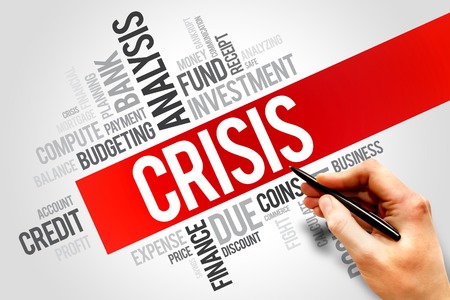Crises come in many forms and require your organization to take a range of preparatory steps. But most crises impact your organization’s finances, and, for this reason, financial preparedness is a critical part of emergency preparedness. Measures you take in advance and during an incident will help your organization weather the crisis and thrive afterward.
Effectively managing finances in a crisis starts well before anything happens. Consider the following pre-planning activities:
Insurance: Review your insurance coverage and ensure you have the appropriate coverage for your organization. Property, general liability, and professional liability are some common insurance policies organizations purchase. Business Interruption and Extra Expense coverage is often overlooked when purchasing Property insurance. It covers the loss of income that a business suffers during an emergency, and the costs associated with temporary displacement, and can help with ongoing expenses. When contracting for this type of insurance, you will evaluate your risks and determine how much, if any, Business Interruption coverage is needed. If you decide not to purchase the coverage, you can still gain valuable insight from your evaluation into the risks your organization faces. Before an incident, it is also important to understand the claims process for the policies you carry and prepare accordingly. Discuss with your insurance broker the documents and evidence you will need to provide when submitting a claim.
Financial Safety Net: Establish or review your financial safety net. Understand your cash flow (incoming and outgoing) at least two quarters out. If possible, maintain a minimum two-month operating supply of cash. This supply may vary depending on your organization. Consider establishing a line of credit for emergency use. This can be a new line of credit, a credit card exclusively for use in an emergency, or a portion of an existing line of credit.
Having established suitable insurance and your financial safety net sets you up for success when an incident does occur.
Prioritize: Cash is important, especially in a crisis, so keep open lines of communication with those to whom you owe money and with those who owe money to you. You may need to prioritize receivables before payables. Consider offering incentives or discounts to customers who pay early. This helps increase incoming cash flow when you may need it most.
As for payables, it is sometimes less impactful to pay a late fee to have access to funds during a crisis. Alternatively, negotiate with parties to whom you owe money. See if payment dates can be extended due to the emergency.
- Record: Maintain good record-keeping practices during the incident for insurance and tax purposes. Keep track of outlays and document loss of business as evidence.
- Communicate: Not directly tied to finances, but key to financial survival, is communicating with key stakeholders, especially customers. Keeping customers engaged will help ensure that your business thrives after the emergency passes. Customers who can empathize with you are more likely to stay loyal during and after the crisis.
Managing finances in a crisis is not just about dollars and cents during an incident. It ties directly to having the right insurance coverage, knowing your cash flow and stakeholders, and your communications plan. Support emergency preparedness by taking steps to ensure your organization is financially prepared for the unexpected.



